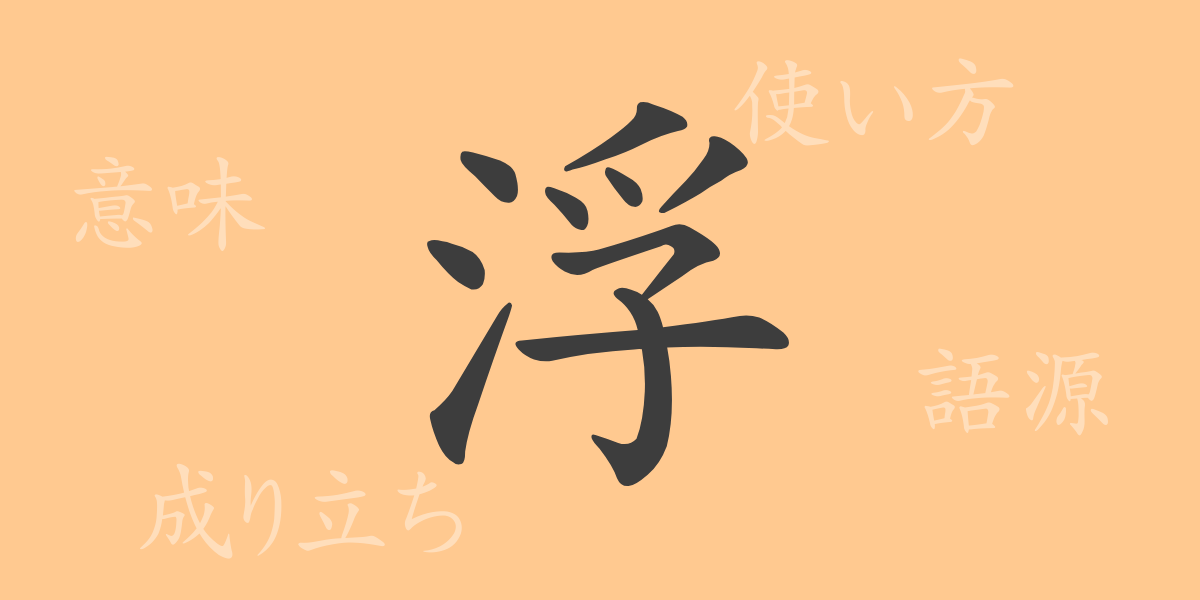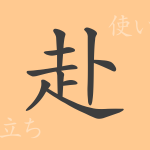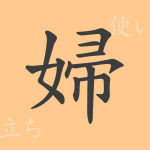Japan’s written culture is profound, with each character carrying its own history and meaning that permeate our daily lives. The kanji (漢字) “浮” (うき, uki) is one such character. The rich expressiveness and background of this single character reflect the lives and emotions of the Japanese people. In this article, we will delve into the origins, meanings, uses, and even idioms and phrases involving “浮” (うき, uki). Let’s embark on a journey to discover the depth of the Japanese language together.
Origins of 浮 (うき, uki)
The kanji (漢字) “浮” (うき, uki) developed from ancient Chinese pictographs depicting objects floating on water. Originally, it symbolized leaves floating on water, and over time, it came to represent the general idea of things rising lightly. In Japan, this character has been used since ancient times and has become deeply embedded in daily life with diverse meanings.
Meanings and Uses of 浮 (うき, uki)
The kanji (漢字) “浮” (うき, uki) signifies “being supported by water or air” and “an unstable, unsettled state.” Figuratively, it can describe situations like “unsettled mind” or “economic instability.” It is used to express natural phenomena, emotions, economic conditions, and other abstract concepts.
Reading, Stroke Count, and Radical of 浮 (うき, uki)
Let’s take a closer look at the kanji (漢字) “浮” (うき, uki).
- Readings: On’yomi (音読み) as “フ” (ふ, fu), Kun’yomi (訓読み) as “う・かる・うか・うかれる・うかぶ” (う・かる・うか・うかれる・うかぶ, u・karu・uka・ukareru・ukabu)
- Stroke count: 10 strokes
- Radical: 水 (みず, mizu) or さんずい (さんずい, sanzui)
Idioms, Phrases, and Proverbs Using 浮 (うき, uki)
There are numerous idioms, phrases, and proverbs in Japanese that include “浮” (うき, uki). Here are a few examples:
- 浮世 (うきよ, ukiyo): The fleeting nature of this world. Also refers to the culture and customs of the Edo period.
- 浮気 (うわき, uwaki): Infidelity or unfaithfulness, where one’s affections shift from a specific partner to another.
- 浮沈 (ふちん, fuchin): Fluctuations. Refers to unstable fortunes or circumstances.
- 浮つく (うわつく, uwatsuku): To be restless or frivolous.
- 浮世絵 (うきよえ, ukiyoe): A genre of woodblock prints and paintings that flourished during the Edo period, depicting everyday life and actors.
Conclusion on 浮 (うき, uki)
The kanji (漢字) “浮” (うき, uki) has evolved over time, becoming a word closely tied to the lives and emotions of the Japanese people. From objects floating on water to the movements of the human heart, this character exemplifies the richness of Japanese expression. When using “浮” (うき, uki) in writing or conversation, recalling its historical and meaningful background can deepen the appreciation of its significance.

























